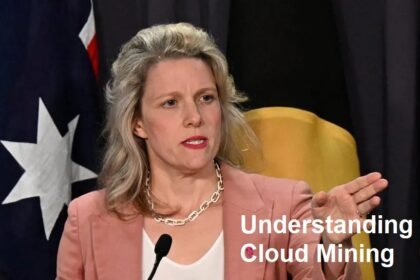Definition of Real Conjuncture Theory
Real Conjuncture Theory refers to an approach in macroeconomics, which studies short-term fluctuations in the economy. This theory tries to explain how changes in external factors such as demand, technology, and fiscal policy can cause fluctuations in output and employment. Real Conjuncture Theory was born as an effort to integrate previously separate elements in macroeconomic analysis such as growth theory, investment theory and inflation theory. The background of real conjuncture theory is related to the observation that the economy often experiences short-term fluctuations around its growth trend. Through these studies, economists attempt to explain changes in key economic variables such as output, inflation, and unemployment as a result of changes in external factors. The aim is to understand the causes of these fluctuations, as well as their impact on economic policy.
Real Conjuncture Theory is closely related to the phenomena of business cycles and economic fluctuations. The business cycle is a period of repeated rises and falls in the level of economic activity over time which is reflected in variables such as gross domestic product (GDP), unemployment rates, and inflation. This theory provides arguments about how production and demand factors can influence the business cycle, where changes in these factors will have an impact on economic activities such as production, employment, and consumption. In a practical context, understanding real conjuncture theory is very important for policy makers and stakeholders. By considering the factors discussed in this theory, they can design appropriate fiscal and monetary policies to reduce the negative impact of economic fluctuations and create conditions that support more stable and sustainable economic growth. Apart from that, this theory also helps various parties to anticipate changes in economic conditions and respond with appropriate steps, such as adjusting investment strategies and resource management. Thus, real conjuncture theory becomes an important basis for macroeconomic analysis and public policy to achieve more stable, inclusive and sustainable economic growth.
Factors Causing Real Conjuncture
Real conjunctures are changes that occur in a country’s economy that affect the balance between aggregate supply (total goods and services produced) and aggregate demand (total consumption, investment and exports). The factors causing the real conjuncture include, among other things, technological changes and innovation-productivity that affect the economy. Technological innovation in various industries can increase productivity and production efficiency so that it can have a positive impact on income levels, employment and market prices. The government’s monetary and fiscal policies also have an important role in influencing the real conjuncture. Monetary policy involves the central bank’s efforts to regulate the money supply, interest rates and banking credits. Meanwhile, fiscal policy includes the management of state revenues and expenditures carried out by the government through the imposition of taxes, non-tax state revenues, as well as financing from government debt. These two policies interact with each other in an effort to create economic stability and control inflation.
Aggregate supply and demand that fluctuates over time is also a factor causing real conjunctures. These fluctuations occur due to various economic events and changes that can influence the behavior of consumers, investors and other economic actors. For example, an unfavorable political and legal situation or a natural disaster that strikes an area can cause a decrease in aggregate demand. On the other hand, technological advances and infrastructure developments can increase aggregate supply. To manage the real conjuncture effectively, the government and central bank need to analyze the impact of the various factors mentioned and formulate appropriate strategies to produce stable economic growth, create jobs, and maintain a balance between inflation and unemployment levels. One way that can be done is by adjusting monetary and fiscal policies according to current economic conditions. In addition, the government needs to promote technological innovation and infrastructure development to encourage increased productivity and aggregate supply. In the long term, policies that are proactive and responsive to economic dynamics will help achieve sustainable economic growth and better social welfare.
The Impact of Real Conjunctures on the Economy
The impact of real conjunctures on the economy is very significant, because economic cycles occur due to changes in overall economic activity. The most pronounced influence is on the level of investment, consumption, income and economic growth. When the economy experiences positive growth, this will increase people’s purchasing power and influence higher levels of investment and consumption. However, with increasing public consumption in a country, the production of goods and services will increase. This leads to company strategies to increase their investment in order to meet market demand. In the long term, increasing investment will have an impact on increasing income and overall economic growth.
However, when the economy experiences unfavorable real conditions, the variability of inflation and unemployment will become a serious problem. Changes in the real conjuncture are closely related to fluctuations in the inflation rate and unemployment rate in a country. If a country experiences a decline in economic activity or a recession, inflation tends to be low and unemployment will increase. To control the variability of inflation and unemployment as a result of changes in real conditions, the government and central bank play an important role in implementing appropriate monetary and fiscal policies. These policies aim to stabilize economic growth, reduce market uncertainty, and maintain reasonable levels of inflation and unemployment. In this context, understanding the impact of real conjunctures on the economy becomes very important for policy makers and other stakeholders.
Analysis of Real Conjuncture Theory in Economic Practice
Real conjuncture theory analysis is concerned with understanding economic fluctuations in the context of economic policy and government or central bank intervention. In this study, empirical studies are used to evaluate how economic policies can reduce fluctuations in real conditions and maintain economic stability. The main objective of this analysis is to identify effective strategies in overcoming the negative impact of the real conjuncture on the economy. Empirical studies on real conjunctures provide data and information on how monetary and fiscal policies influence economic fluctuations. During an expansion phase, the government may increase public spending or reduce taxes to stimulate economic growth. Meanwhile, during the recession phase, the central bank may loosen monetary policy by lowering interest rates or conducting open market operations.
The strategy implemented by the government and central bank to overcome the negative impact of the real conjuncture involves coordination between monetary and fiscal policies. Monetary policy is regulated by the central bank through tools such as benchmark interest rates, reserve requirements, and open market operations. Meanwhile, fiscal policy involves the government in determining public spending, taxes and debt. These two policies have complementary effects and can be applied in various economic conditions. In economic practice, real conjuncture theory analysis plays an important role in helping policy makers to formulate appropriate strategies to overcome economic fluctuations. A deep understanding of how real conjunctures occur and how specific policies can dampen these fluctuations is critical to achieving long-term economic stability. Thus, policy makers, the government and the central bank must continuously evaluate the effectiveness of the policies implemented to reduce the negative impact of the real conjuncture, and make adjustments if necessary in order to create sustainable economic growth and improve people’s welfare.









